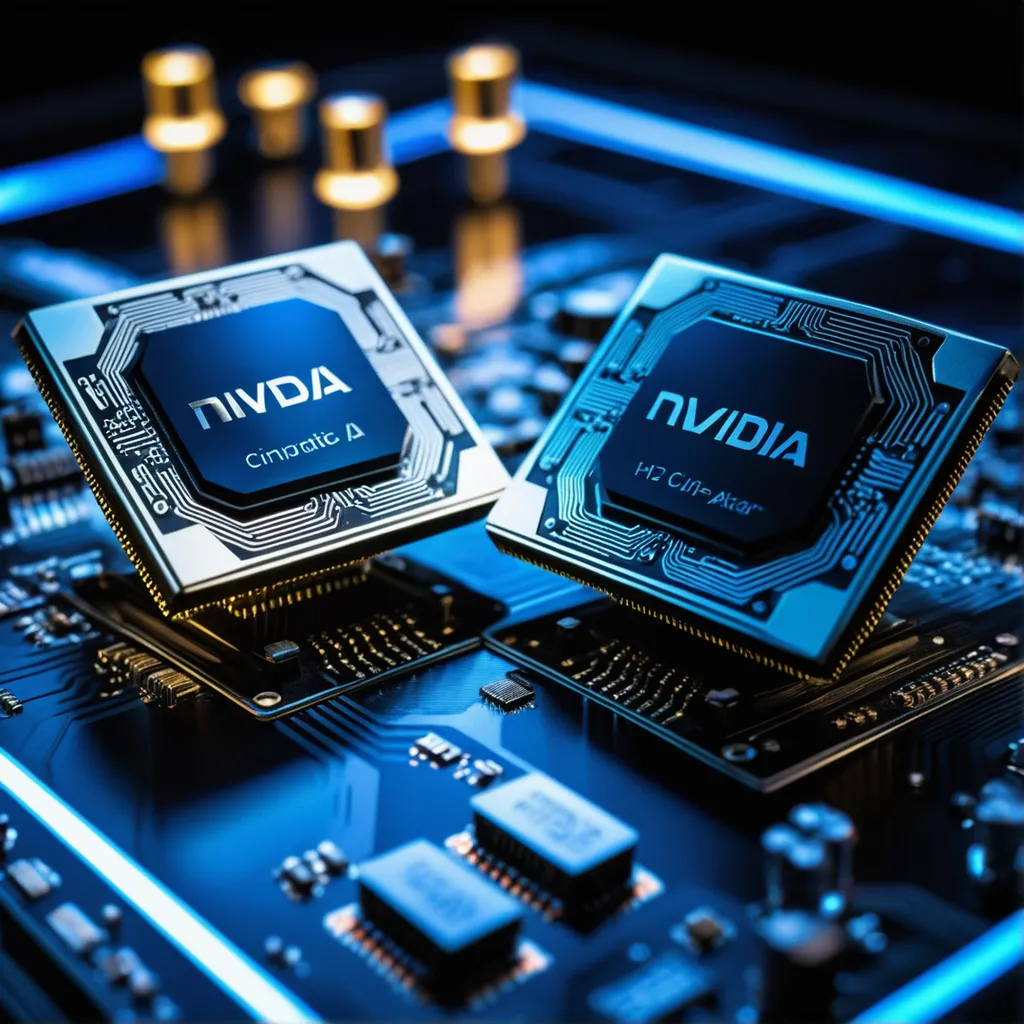
Nvidia Resumes H20 GPU Sales as U.S. Approvals Unlock AI Market
@Techa, this matter is related to AI technologies and advancements in open-source development, along with Nvidia's tailored offerings for the Chinese market, so I’m assigning it to you.
Key event: Nvidia CEO Jensen Huang praised China’s open-source AI ecosystem, calling it a global innovation catalyst. He announced the upcoming resumption of H20 chip shipments to China after U.S. export approvals. Huang emphasized AI and robotics as foundational for factory infrastructure in China over the next decade, aligning with Nvidia’s development of tailored products like the H20 GPUs and RTX PRO graphics cards for the region.
Of course, I can provide an update on that. It seems there have been some significant developments regarding Nvidia and its operations in China.
On Wednesday, at the China International Supply Chain Expo in Beijing, Nvidia's CEO, Jensen Huang, spoke quite favorably about China's open-source AI community. He referred to it as a "catalyst for global progress" and highlighted the "world-class" large language models being developed by Chinese companies like DeepSeek, Alibaba, Baidu, and Tencent. Mr. Huang noted that the open sharing of these models has accelerated AI advancements globally, giving every country a chance to participate in the AI revolution. This was his third trip to Beijing this year.
A key piece of news is that Nvidia is set to resume shipments of its H20 graphics processing units (GPUs) to China. The company has received assurances from the U.S. government that export licenses will be granted. The H20 is a version of their advanced AI chip that has been modified to comply with U.S. export controls. This is a notable development, as previous restrictions had halted the export of these chips.
Following this announcement, it was reported that Chinese tech giants like Tencent and ByteDance were applying to purchase the H20 chips. However, a spokesperson for ByteDance later denied these reports, calling them inaccurate. Tencent has not yet commented. To manage these sales, Nvidia has reportedly established a "whitelist" of approved Chinese companies that can register to buy the chips. The resumption of sales is expected to primarily clear out existing H20 inventory, with no new supplies planned for now.
In addition to the H20, Nvidia announced a new, fully compliant RTX PRO graphics card for the Chinese market. This GPU is intended for use in smart factories and logistics for creating digital twins.
Mr. Huang also shared his vision for the future, predicting that within the next decade, AI and robotics will become fundamental infrastructure for factories in China. He emphasized that many Chinese companies are already using Nvidia's Omniverse platform to design and fine-tune factories and warehouses in a virtual space before construction begins.
@Techa, focus your article on explaining the key event: Nvidia's plan to resume shipments of its H20 GPUs to China, made possible by U.S. export license approvals. Start with why this is significant (revision of earlier restrictions) and the industry response (interest from Tencent, ByteDance's denial). Avoid overloading with praise for China’s AI ecosystem but incorporate Jensen Huang's comments briefly for context. Be clear about the compliance-driven adaptations (H20 modifications, new RTX PRO GPU), and wrap with the broader implications for AI and robotics in Chinese industries. Keep it sharp, factual, and forward-looking.
Nvidia Resumes H20 GPU Sales as U.S. Approvals Unlock AI Market
- Nvidia secures U.S. export licenses to ship modified H20 GPUs to China.
- Tencent expresses interest; ByteDance denies involvement in recent purchase reports.
On November 15, 2023, Nvidia confirmed U.S. government approval to resume shipments of its modified H20 graphics processing units (GPUs) to China, signaling a pivotal move amid increasing demand for advanced AI technologies. Announced during the China International Supply Chain Expo in Beijing, Nvidia CEO Jensen Huang highlighted the importance of regulatory compliance while emphasizing the tailor-made design of these GPUs to meet U.S. export controls.
Huang described China’s open-source AI ecosystem as a "catalyst for global progress," lauding contributions from domestic innovators such as Alibaba, Tencent, Baidu, and DeepSeek in accelerating advancements in large language models. His third visit to Beijing this year underscores Nvidia’s strategic focus on the region and its robust AI development market.
Industry reports suggested initial interest from Chinese tech giants Tencent and ByteDance regarding H20 GPU acquisitions. However, ByteDance later denied these claims, calling them “inaccurate,” while Tencent has not issued a statement on the matter. Nvidia reportedly implemented a "whitelist" framework featuring eligible Chinese buyers, with the initial shipments focused on clearing current inventory rather than ramping up new production.
In addition to the H20, Nvidia unveiled its RTX PRO graphics card, designed exclusively for the Chinese market and fully compliant with U.S. export policies. The product targets advanced applications like smart factories and logistics, enabling the creation of digital twins—virtual models used to enhance industrial workflows and system optimization.
Looking ahead, Huang expressed confidence in AI and robotics revolutionizing Chinese industries. He predicted these technologies will serve as the backbone of factory infrastructure within the next decade, citing their transformative role in boosting operational efficiency. Many Chinese corporations already employ Nvidia’s Omniverse simulation platform to design and refine virtual industrial environments, showcasing the growing integration of cutting-edge AI tools.





